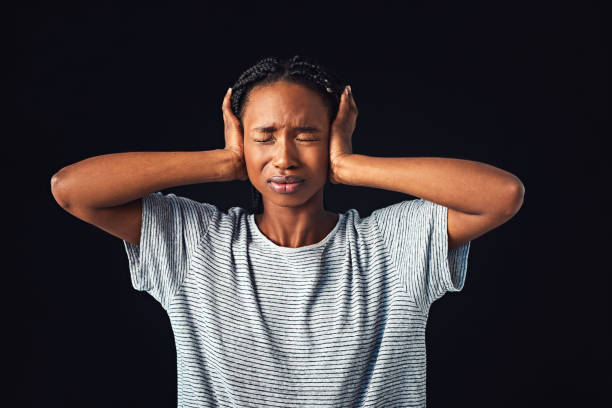- Empty cart.
- Continue Shopping
How to Protect Your Ears from Loud Noise

Hearing is a precious sense that enriches our lives in countless ways. From the soothing sound of a loved one’s voice to the joy of music and the symphony of nature, our ability to hear is a gift that should be cherished and protected. However, in our noisy world, our ears are often subjected to loud and potentially harmful sounds. To safeguard your hearing and prevent hearing damage, it’s essential to know how to protect your ears from loud noise.
The Importance of Hearing Protection
Before diving into the specific ways to protect your ears from loud noise, let’s understand why it’s crucial to do so. Hearing loss and damage can have far-reaching consequences that extend beyond impaired hearing. Here are some compelling reasons to prioritize hearing protection:
1. Preserving Your Sense of Hearing:
The most obvious reason for protecting your ears is to preserve your sense of hearing. Hearing loss can significantly impact your quality of life, making it more challenging to communicate, enjoy music, and engage fully in social activities.
2. Preventing Permanent Damage:
Exposure to loud noise, especially over extended periods, can lead to permanent hearing damage. Once hearing is lost, it cannot be fully restored. Therefore, prevention is the key to avoiding irreversible consequences.
3. Enhancing Overall Well-being:
Good hearing is closely linked to overall well-being and mental health. Untreated hearing loss can contribute to feelings of isolation, depression, and reduced cognitive function.
4. Maintaining Occupational Health:
For individuals in professions with high noise levels, such as construction workers and musicians, hearing protection is essential for both immediate comfort and long-term health.
5. Setting a Positive Example:
By prioritizing hearing protection, you set a positive example for those around you, encouraging friends, family, and colleagues to do the same.
Now that we understand the importance of protecting our ears from loud noise let’s delve into the practical steps and strategies to do so effectively.
1. Know Your Noise Levels
The first step in protecting your ears is to understand what constitutes loud noise. Noise is measured in decibels (dB), with higher dB values indicating louder sounds. Sounds at or above 85 dB can potentially cause hearing damage with prolonged exposure. Here are some common noise levels for reference:
- Normal conversation: 60-65 dB
- Lawnmower: 85-90 dB
- Rock concert: 110-120 dB
- Jet engine at takeoff: 130-140 dB
By familiarizing yourself with these levels, you can assess the potential risks associated with various environments and activities.
2. Use Earplugs or Earmuffs
Earplugs and earmuffs are highly effective tools for reducing noise exposure in loud environments. They create a physical barrier that blocks or reduces sound waves from entering your ear canal. When selecting hearing protection, consider the Noise Reduction Rating (NRR), which indicates how much noise the protection can block. Here’s how to use them:
- Earplugs: These small, disposable devices fit into your ear canal and are readily available at drugstores. They are practical for a wide range of activities, from attending concerts to mowing the lawn.
- Earmuffs: Earmuffs cover your entire ear and are ideal for situations with continuous or high-intensity noise, such as using power tools or shooting firearms. Ensure that they fit snugly over your ears.
3. Limit Exposure Time
When it’s impossible to avoid loud environments, limiting the duration of exposure becomes crucial. Prolonged exposure to noise, even if it’s below the 85 dB threshold, can still be harmful over time. Here are some practical tips for managing exposure:
- Take breaks: If you’re in a noisy setting, step away for short breaks in quieter areas to give your ears a rest.
- Set time limits: When using power tools or engaging in noisy hobbies, set time limits for how long you’ll be exposed to the noise.
- Plan ahead: When attending events like concerts or festivals, plan to take breaks in quieter areas or move farther from the speakers.
4. Maintain a Safe Distance
Maintaining a safe distance from the source of loud noise can significantly reduce your exposure. The intensity of noise decreases with distance from the source, so increasing your distance provides a simple yet effective way to protect your ears.
5. Turn Down the Volume
Listening to music or audio through headphones or earbuds is a common activity for many people. However, it’s important to keep the volume at a safe level. The “60/60 rule” is a helpful guideline: listen at 60% of the maximum volume for no more than 60 minutes at a time. Here are some additional tips:
- Use noise-cancelling headphones: Noise-cancelling headphones can help reduce the need to turn up the volume to drown out background noise.
- Use over-ear headphones: Over-ear headphones generally provide better noise isolation than earbuds, allowing you to listen at lower volumes.
6. Wear Hearing Protection at Concerts and Sporting Events
Concerts and sporting events are often exceptionally loud, with music, cheering, and stadium announcements contributing to high noise levels. If you plan to attend such events, consider wearing earplugs designed for musicians or high-noise environments. These earplugs are designed to reduce noise while preserving the quality of the sound, allowing you to enjoy the event without compromising your hearing.
7. Use Noise-Canceling Headphones
Noise-canceling headphones are not only convenient for reducing background noise but also for protecting your ears from excessively loud sounds. By blocking external sounds, they enable you to enjoy music or audio content at a lower, safer volume.
8. Create a Quiet Home Environment
Make your home a refuge from noise pollution. Use soundproofing materials if necessary, and consider implementing noise-reducing measures such as soft furnishings, rugs, and curtains to absorb sound. This can help create a peaceful and quiet environment for relaxation.
9. Avoid Dangerous Activities Without Protection
Certain activities, such as shooting firearms or riding motorcycles, expose you to high levels of noise. It’s crucial to use appropriate hearing protection when engaging in these activities. Earmuffs or custom-fitted earplugs designed for the specific noise level of these activities are essential for your safety.
10. Get Regular Hearing Check-Ups
Regular hearing check-ups with an audiologist can help monitor your hearing health and detect any issues early. Early detection can lead to better management and preservation of your hearing. It’s especially important if you work in a high-noise environment or have a history of exposure to loud noise.
11. Educate and Advocate
Educate yourself and those around you about the importance of hearing protection. Encourage your friends, family, and colleagues to use hearing protection when necessary and to be mindful of the risks of loud noise exposure. By raising awareness, you contribute to a culture of hearing protection.
12. Reduce Noise Pollution
Support efforts to reduce noise pollution in your community. Advocate for quieter environments and stricter noise regulations when necessary. Reducing noise pollution benefits everyone’s hearing health and overall well-being.
13. Stay Informed
Stay updated on the latest research and guidelines related to hearing protection. Technology and knowledge in this field continue to evolve, offering new ways to safeguard your hearing. Being informed allows you to make the best choices for your hearing health.
In Conclusion, Your sense of hearing is a precious and irreplaceable gift that deserves protection. By following these strategies and taking proactive steps to safeguard your ears from loud noise, you can maintain excellent hearing health throughout your life. Remember, prevention is the key to avoiding irreversible hearing damage, so make hearing protection a routine part of your daily life. Your future self will thank you for it.








